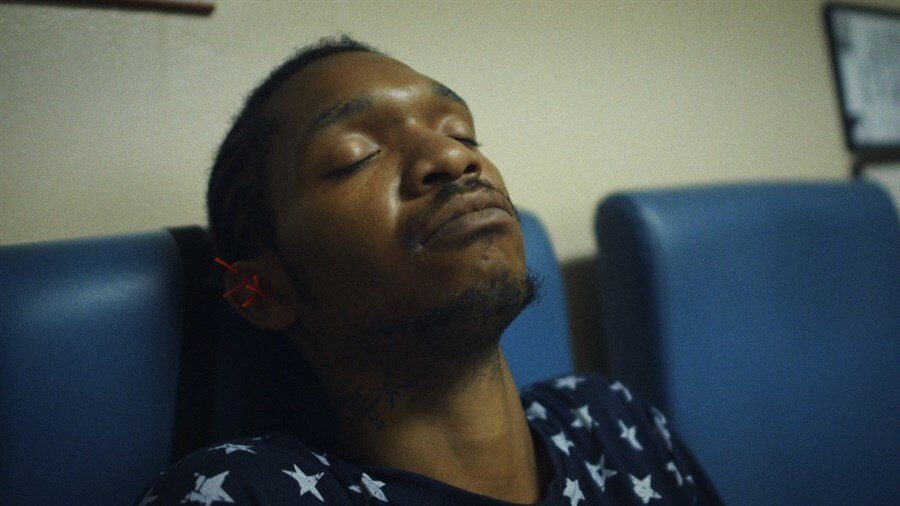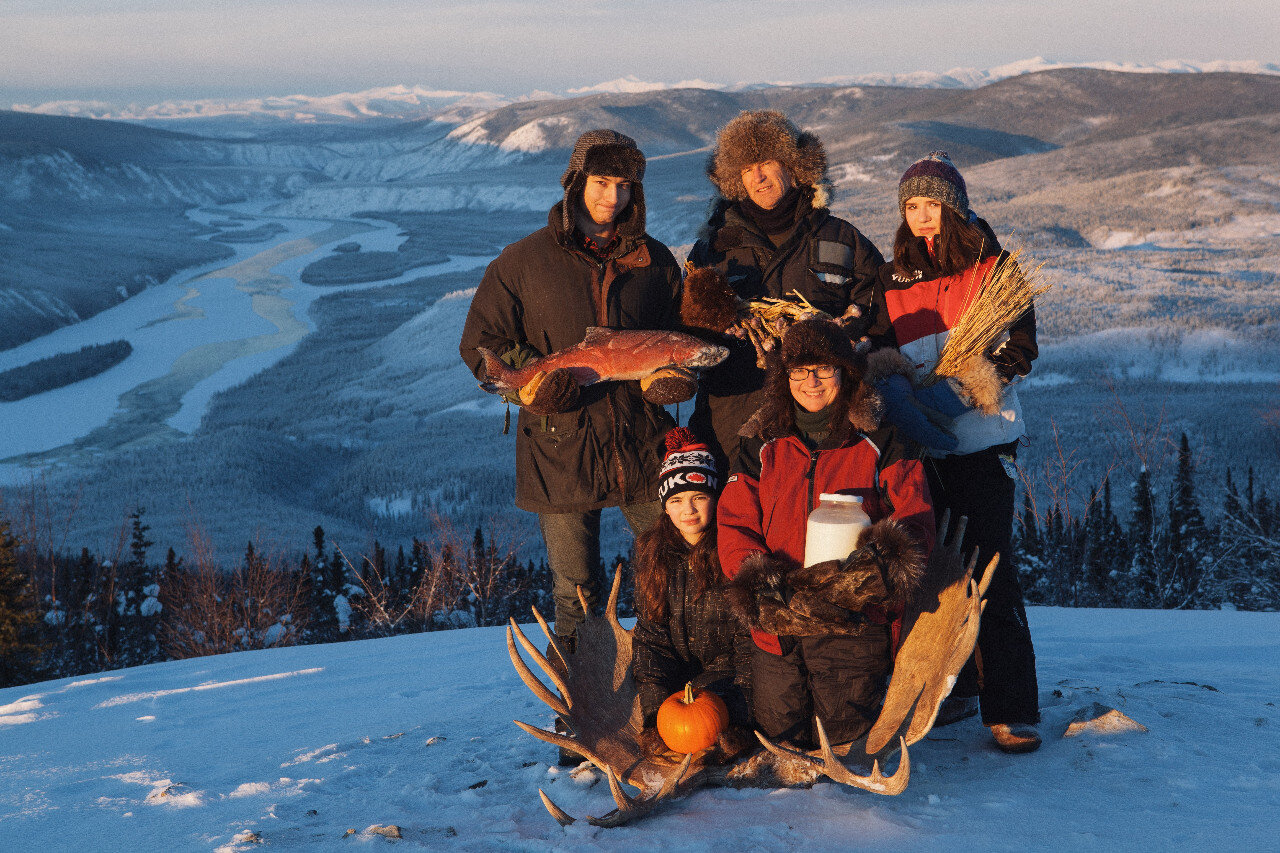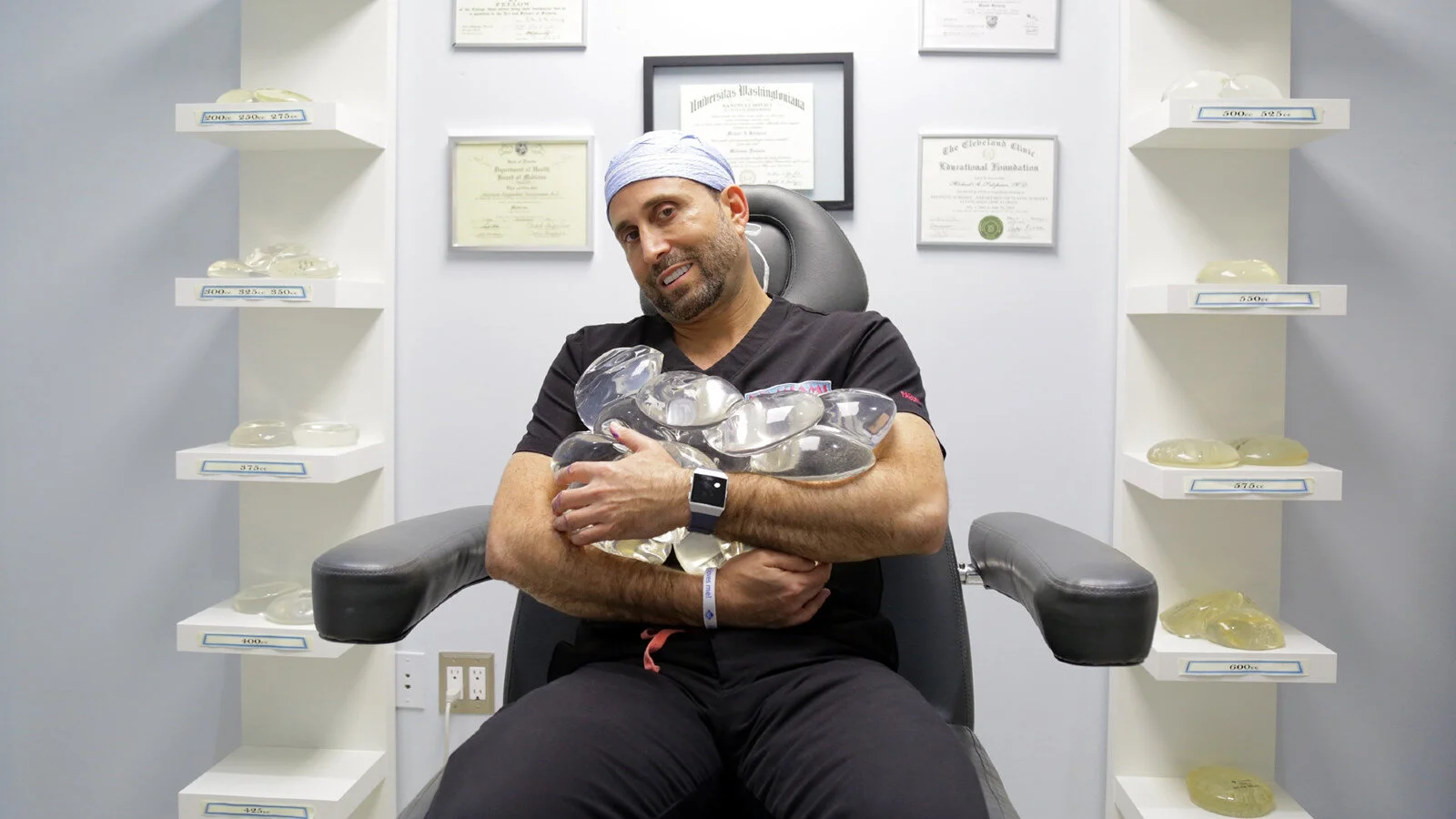Hot Docs Festival Online: Our picks of the COVID-stricken festival's home delivery service
By Jim Slotek, Liam Lacey, Kim Hughes, Bonnie Laufer. Thom Ernst, Linda Barnard and Karen Gordon
Shut down in the real world by the pandemic, North America’s premiere doc event Hot Docs 2020, has virtually reinvented itself as the Hot Docs Festival Online. Starting Thursday, May 28, 135 thought-provoking films and myriad events will be on offer at a home theatre very near you.
Original-Cin’s Kim Hughes, Bonnie Laufer, Liam Lacey, Thom Ernst, Jim Slotek and Bonnie Laufer pre-screened some noteworthy Hot Docs 2020 films in advance of opening day. For a complete list of what’s on offer, click HERE.
For Bonnie Laufer’s interview with Alexandre O. Philippe, director of Leap of Faith: William Friedkin on The Exorcist, click HERE.
D: Ali Weinstein | Canada | 2020 | 75 min | Canadian Spectrum
Rating: B
An almost unobtainable demographic for most mainstream churches, Millennials are the target market for the contemporary Australian church C3. This doc by Ali Weinstein (Mermaids) follows the ambitious pastor Sam Picken as he tries to put Toronto on his church’s map, backed by a band, preaching in his t-shirt, tats and torn jeans, inserting anti-Boomer anger into his sermons. Some of what slips out sounds old school though, like Pastor Sam’s soft-spoken injunctions against gay sex. And some ex-followers clearly didn’t find what they were looking for. Is it a church or an ego trip? C3’s own co-operation arguably softens the film somewhat, but it’s a fascinating phenomenon. - Jim Slotek
Dope Is Death.
D: Mia Donovan | Canada | 2020 | 78 min |Canadian Spectrum
Rating: B+
The ‘60s/’70s were so routinely bizarre, they are almost unbelievable in hindsight – like the FBI’s COINTELPRO operation that could break the law in its war against Black Panthers and other “threats.” One such threat manifested in 1970, when Puerto Rican and Black activists, furious that the heroin scourge in Black neighbourhoods was ignored, occupied New York’s Lincoln Hospital, demanding that a community drug rehab be established. That rehab – specializing in using acupuncture to treat addiction – ran under the aegis of Dr. Mutulu Shakur (Tupac’s stepfather). It also taught political awareness to children in its facility, and Shakur became a political celebrity who was invited to Mao’s China. Mia Donovan’s film proceeds relentlessly to the rehab founders’ bad ends, but strikes a hopeful note with the part of it that survives today. – JS
Finding Sally
D: Tamara Dawit | Canada | 2020 | 78 min | Revisionaries
Rating: B
Canadian-Ethiopian filmmaker Tamara Mariam Dawit sets out to unravel a family mystery with the help of her vivacious Ethiopian aunts, the four formidable sisters and the missing fifth at the heart of her documentary Finding Sally. A portrait over her grandmother’s fireplace in Addis Ababa spurs Dawit’s search for her Selamawit, called Sally, a member of the outlawed Ethiopian People’s Revolutionary Party who disappeared after going underground at age 23. She was never seen by her family again. Finding Sally reveals a fascinating story, including a revealing chapter about the period the young women lived and went to school Ottawa, a rare Black family in a very white city during their father’s posting at the new Ethiopian embassy. - Linda Barnard
First We Eat.
D: Suzanne Crocker | Canada | 2020 | 101 min | To Conserve and Protect
Rating: B+
Effectively a domestic sit-com about a serious subject – food sustainability. The movie begins with Suzanne Crocker (barely) convincing her skeptical family to spend a year eating locally only. Did we mention they live in Dawson City, Yukon, less than 300 km from the Arctic Circle? As it happens, Dawson is the farthest north place for a lot of tenuously existing things, including honeybees, greenhouse apples and dairy cattle. And when you can’t get that, there’s always moose nose, Chinook salmon, sugar beets and salt extracted from mud. Lots of eye-rolling and thought-provoking revelations about our global dependence on shipped food. – JS
D: Peter Murimi | Kenya, Canada, UK, USA | 2020 | 75 min | World Showcase
Rating: B
In May 2019, the Kenyan high court upheld anti-homosexual laws that date back to the British rule, and though such laws are rarely enforced, they legitimize a climate of anti-LBGTQ violence. Kenyan director Peter Murimi’s film, shot over a five-year period, follows the personable young Samuel and his partner Alex as they seek to maintain ties to Samuel’s conservative preacher/farmer father and loving mother. While both hopeful and shocking (a phone video of a homophobic attack), I Am Samuel — even at a short 75 minutes — feels repetitive and drawn-out. - Liam Lacey
Leap of Faith: William Friedkin on The Exorcist.
Leap of Faith: William Friedkin on the Exorcist
D: Alexandre O. Philippe | USA | 2019 | 105 min | Nightvision
Rating: A
The Exorcist is the first horror film I saw in the theatre and it’s stayed with me for life. So, there was no question I’d check out Leap of Faith: William Friedkin on the Exorcist. Director Alexandre O. Philippe spent six days interviewing Friedkin about this film that remains relevant 46 years later. Friedkin divulges fascinating secrets about the making of the film that we have never heard before. The epic six-day conversation—modeled after the famed Hitchcock/Truffaut interview—forms the film’s narrative, explores Friedkin’s influences, the intricacies of adapting William Peter Blatty’’s novel, production intrigues, and even actor Max von Sydow’s faith. Check out our interview with Alexandre O. Phillippe HERE. - Bonnie Laufer
D: David Osit | USA, UK | 2020 | 89 min | World Showcase
Rating: A
Musa Hadid is the modern mayor of Ramallah, the de facto West Bank Palestinian capital of 57,000, which is a few miles north of Jerusalem and surrounded by Israeli settlements. David Osit’s film follows Hadid’s day-to-day activities over a few months. They range from a civic branding committee, inaugurating a new fountain to holding Christmas Day celebrations. Like the mayor, a quarter of the population is Christian. Hadid’s quotidian administrative duties are never separate from the geopolitical realities, visits from foreign delegations, and the regular shows of force by Israeli soldiers, who retreat in an exchange of tear-gas grenades and hurled rocks. Offering a multi-faceted view of life on the West Bank, Mayor communicates expected frustration and an unexpected sardonic humour and resilience. - LL
D: Liz Marshall | Canada | 2020 | 90 min |Special Presentations
Rating: A
There are already vegetarians and vegans who are mad at animal rights icon Liz Marshall (The Ghosts in our Machine) for effectively endorsing the eating of meat, with this doc on the rush-to-market of cell-raised beef, chicken and pork. But the issue – factory-level production of food raised from biopsies of unharmed animals – forces everyone to examine meat eating, and the basis of their objection to it. Meat the Future takes you behind the scenes of Memphis Meats, which debuted a $1,000 meatball a few years ago and has attracted investment from the likes of Richard Branson and Bill Gates. And what will it mean when it sits in a supermarket fridge next to meat from slaughtered animals at nearly the same price point? Lots of food for thought in this disruptive film about food. - JS
D: Jerry Rothwell | UK | 2019 | 82 min | World Showcase
Rating: A-
The Reason I Jump explores the lives of several autistic youths from around the world, all without traditional means of communicating, and yet whose lives are full and vibrant. An initial reaction might be to applaud the film for celebrating triumph over adversity, as each of these youths achieve what few of us might imagine them capable of. But filmmaker Jerry Rothwell demands more from us than simply our admiration. In this way, The Reason I Jump is a remarkable documentary not because of what it includes, but because of what it avoids. This is not a sensationalized tale of unlikely heroes beating the odds, but a story about people finding their way to being understood. Admiration is easy; what’s difficult, and what Rothwell so effectively illustrates, is the recognition that even a life we might label as compromised can be rich and fulfilling. Not to be missed. -Thom Ernst
Softie.
D: Sam Soko | Kenya, Canada | 2020 | 96 min | World Showcase
Rating: B+
A smart and layered political drama, Softie opens with a bizarre political protest that took place in downtown Nairobi in 2013, with the release of a herd of baby pigs and buckets of blood to protest politician’s salaries. The mastermind was Boniface “Softie” Mwangi, a celebrated Kenyan photojournalist and political activist who, in 2017, decided to take it one step further by running for parliament on an anti-corruption platform. Director Sam Soto decided to follow him. The film, edited and co-produced by Montreal’s Eyesteelfilms, folds in Kenya’s troubled post-colonial democracy with the modern campaign, and also turns into a family drama as Softie’s wife, Njeri, mother of three children, challenges the wisdom of Softie’s potential martyrdom. – LL
D: Michèle Stephenson | USA, Canada | 2020 | 95 min | Canadian Spectrum
Rating: B+
Haiti and the Dominican Republic share the island of Hispaniola, and a history that includes the 1937 massacre of thousands of Haitians living in the Dominican Republic’s northwestern frontier. Haitian director and former human rights lawyer Michèle Stephenson’s documentary connects the island’s violent racist legacy to the Dominican Republic’s 2013 high court decision to strip citizenship of its black minority population of Haitian descent, leaving around 200,000 people without a nationality. Stephenson’s film shadows the compelling activist-attorney Rosa Iris who — at risk to her life and family — ran for congress to challenge the law. Poetic but arguably superfluous and distracting are a series of impressionistic interludes, along with the voiceover story of a girl who lived at the time of the 1937 massacre. - LL
D: Aideen Kane, Maeve O’Boyle, Lucy Kennedy | USA | 95 min | Persister
Rating: A-
In 1983, Ireland — running against the international trend — passed a constitutional eighth amendment banning abortion. In 2018, by public referendum, they repealed it. The 8th, with three directors, tracks the campaign’s organizers on both the Yes (repeal) and No (keep it) sides, with numerous talking-head interviews, street interviews, and inspirational rallies or, as one cynical opposition organizer puts it, “Yea! Yea!” moments. The real story here is the war-room drama of a brilliant data-driven campaign and its soft message: Using surveys that showed most undecided voters distrusted the Church, politicians and women’s groups, the Yes organizers won the “empathy battle” with a message of compassionate healthcare. - LL
There’s No Place Like This Place, Anyplace
D: Lulu Wei | Canada | 2020 | 75 min | Canadian Spectrum
Rating: B
So many people still talk about “planned communities,” it’s like Jane Jacobs never existed. . Lulu Wei’s film about the aftermath at Bathurst/Bloor from the sale and closing of Honest Ed’s legendary carnival-lit discount emporium keeps trying to adopt a glass-half-full stance in a story that should provoke anger. Yes, locals proactively sought to counter the plans of a B.C. property developer. But the development goes on. The company received hundreds of millions of tax dollars to provide “affordable” housing that turned out to be not so affordable. And an entire street of artists and characters was swept away. The box-packing inhabitants of the “old” Mirvish Village (a gleaming new one is in the planning stage) are the most entertaining aspect of this ultimately melancholy movie, as are the Old Toronto history lessons within. - JS
They Call Me Dr. Miami
They Call Me Dr. Miami
D: Jean-Simon Chartier | Canada | 2020 | 77 min | Special Presentations
Rating: B
Dr. Michael Salzhauer, the self-billed “best plastic surgeon in the universe,” rules from a golden throne in his Miami office in Canadian filmmaker Jean-Simon Chartier documentary. His empire built on breast implants, mommy makeovers and pneumatic rear ends created by Brazilian Butt Lifts, all livestreamed on Snapchat in bloody real time, Salzhauer is also an Orthodox Jew who keeps kosher and observes the Sabbath, a husband and father of five, including two daughters. With “will the real Dr. Salzhauer please stand up?” Chartier invites us to look a little deeper. How does the star of frenetic videos, rhyming about how he’ll “create the baddest bitches,” with his flashing scalpel, square with living a pious life? - LB
The Walrus and the Whistle Blower.
The Walrus and the Whistle Blower
D: Nathalie Bibeau | Canada | 2020 | 89 min | Canadian Spectrum
Rating: B-
Love for an animal is a powerful thing. And love for a walrus named Smooshi put trainer Phil Demers on a litigious path against Niagara Falls amusement park Marineland and its owner John Holer — who Demers accused of mistreating his charges — while propelling the contentious concept of animal “entertainment” into the spotlight. Filmmaker Nathalie Bibeau’s lifelong friendship with Demers permitted unfettered access to her subject, right down to his gregarious meat eating, which the outspoken Demers allows flies in the face of animal stewardship. But like walruses, dolphins, and other sentient creatures, people are complicated. A companion of sorts to 2013’s Blackfish (though less searing), The Walrus and the Whistle Blower chronicles a landmark Canadian case while championing activists speaking for those who cannot speak for themselves. - KH







